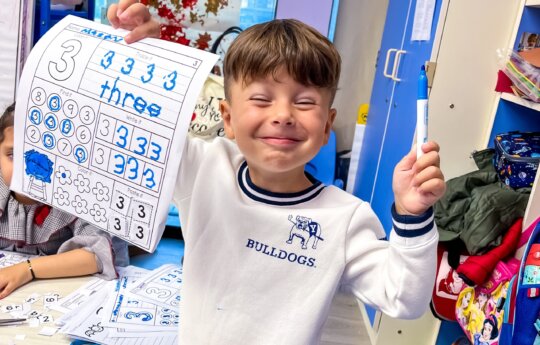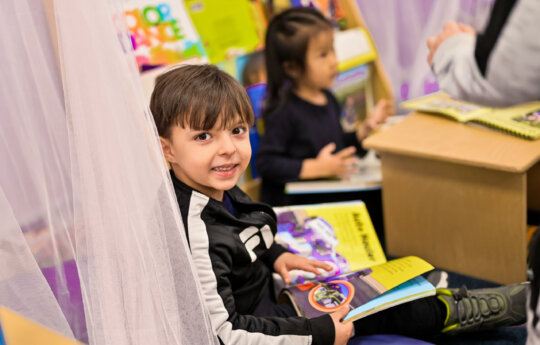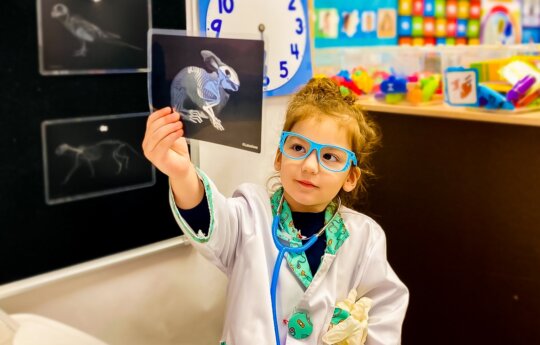
Understanding and fostering early language development is crucial for parents and educators. It’s a journey filled with wonder as children grasp the complexities of language. This article delves into the fascinating world of language milestones in toddlers and speech development in early childhood, providing insights and parenting tips for language development. By the end of this article, you’ll not only be well-informed about these milestones but also inspired to explore the offerings of Little Scholars programs.
The First Words: Speech Development in Early Childhood
The journey of language begins with those magical first words. Around their first birthday, most children start to articulate simple words like “mama” and “dada.” This phase, essential in child language development stages, involves the acquisition of basic vocabulary and the ability to form simple sentences.
Recognizing the Milestones
Understanding communication milestones in children helps in identifying their progress and any potential delays. By the age of two, many toddlers can combine words into short phrases. This progression is a significant aspect of early years language progression.
Tips for Encouraging Speech
- Engage in daily conversations
- Read together regularly
- Use gestures along with words
- Introduce new words in a fun way
The Growing Vocabulary: Enhancing Language Skills in Young Children
As toddlers grow, their vocabulary expands rapidly. This stage is marked by an explosion of words and an increasing ability to form more complex sentences. Enhancing language skills in young children is about providing a rich language environment.
Strategies for Language Enrichment
- Offer varied reading material
- Encourage storytelling and role-play
- Practice active listening
- Provide descriptive feedback
Understanding Complex Sentences: Language Acquisition in Early Childhood
By the age of three or four, children begin to understand and use complex sentences. This progression is a core aspect of language development in young children.
How to Support Complex Language Use
- Discuss various topics
- Encourage curiosity and questioning
- Use complex sentences in conversations
- Play language-based games
Social Language Use: Speech and Language Expectations for Toddlers
Social interaction plays a pivotal role in language development. Toddlers start to use language for different purposes, such as asking questions, expressing needs, and storytelling.
Facilitating Social Language Skills
- Arrange playdates with peers
- Engage in group activities
- Model polite conversation
- Encourage expression of feelings and thoughts
The Role of Caregivers: Supporting Toddler Language Skills
Caregivers are crucial in supporting toddler language learning tips. Consistent interaction, patience, and understanding are key to nurturing language skills.
Caregiver Strategies
- Respond to their attempts to communicate
- Correct gently without discouraging
- Celebrate verbal achievements
- Be patient and listen actively
Recognizing Delays: Understanding Child Speech Milestones
It’s important to recognize that children develop at their own pace. However, being aware of typical milestones helps in identifying any delays in speech development in early childhood.
When to Seek Help
- Limited vocabulary for age
- Difficulty forming sentences
- Challenges in understanding simple instructions
- Lack of interest in communication
The Little Scholars Way
At Little Scholars, we understand the nuances of early years language progression. Our programs are designed to nurture and enhance these skills in a stimulating, supportive environment.
Why Choose Little Scholars
- Expert-led curriculum focusing on language development
- Interactive and engaging learning methods
- Supportive and nurturing educators
- Focus on individual developmental needs
Conclusion
Early language development is a foundational aspect of a child’s growth. Recognizing language milestones in toddlers and actively supporting toddler language skills sets the stage for successful communication abilities in later life. With the right support, such as that offered by Little Scholars programs, your child can thrive in their language development journey.




